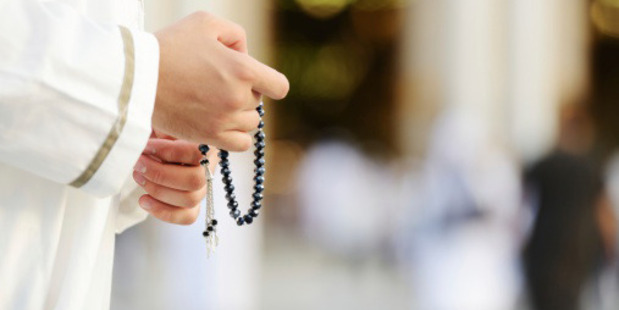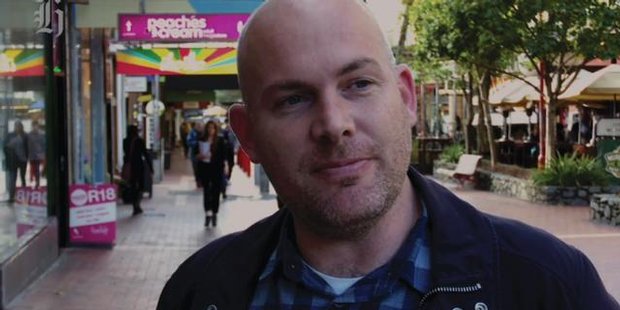The state of faith: Muslims most likely to be unemployed
Adherents of some religions, such as Islam, are far less likely to be employed than followers of faiths such as Christianity or people with no religion.
A University of Waikato Islamic studies review on patterns and disparity of New Zealand Muslims found Muslims to be more educated and qualified than Christians.
Jews and Hindus hold the highest education level with almost a third holding tertiary qualifications.
However, Muslims are three times more likely to be without a job than Christians or people not affiliated to any religion.
“The results … have shown that about one-fifth of New Zealand Muslims are highly educated, but they also hold the highest unemployment rate as compared to other religious groups in New Zealand,” said report author Yaghoob Foroutan.
“Muslims are less likely to be employed … [and have] the lowest level of managerial and professional occupations than all other religious groups in New Zealand.”
About 12 per cent of Muslims here are unemployed compared with 4 per cent for Christians and those without religion.
Overall, Muslims are two times more likely to be unemployed than non-Muslims and the unemployment rate is relatively higher, at about 15 per cent, for Muslims born in Iraq, Iran and Malaysia.
At the last Census, 46,194 identified as Muslims, and more than one in five – similar levels as Buddhists – had tertiary education.
One in five Christians, who had the oldest median age of 40, had no qualifications.
Muslims and those affiliated with no religion hold the youngest age structure, with a median age of 25.
Dr Zain Ali, head of Islamic research at the University of Auckland, said having foreign-sounding names and dressing differently made it tougher for Muslims to find employment.
Also, many were migrants who did not have relevant work experience or qualifications that were recognised in New Zealand.
Islam is among the few religions that grew strongly between 2006 and 2013, and Census figures revealed that three in four Muslims had lived in New Zealand for fewer than 10 years.
Christians are the longest-term residents with almost six in 10 having lived here for 10 years or more.
Dr Ali said employers here also had a bias towards wanting to be with those they could relate to and some felt uncomfortable with “scarf-wearing” Muslims.
AUT University Professor of Diversity Edwina Pio said that many Muslims also chose not to allow their women-folk to work.
She said that although Muslims were more qualified on paper, their education and skills may not be relevant or recognised in New Zealand.
“Qualifications do not necessarily equate with skill level and accomplishment as the qualifications … may be variable based on the wide variation in university level qualifications,” Professor Pio said.
She said the community had low levels in managerial positions because of a reluctance to adapt to New Zealand norms.
“Muslims may feel that if they adapt to some of the norms of New Zealand, they dilute their own religion,” said Professor Pio.

Not all religions and their followers are equal in New Zealand, a Herald investigation into the state of faith has found.
Adherents of some religions, such as Islam, are far less likely to be employed than followers of faiths such as Christianity or people with no religion.
A University of Waikato Islamic studies review on patterns and disparity of New Zealand Muslims found Muslims to be more educated and qualified than Christians.
Jews and Hindus hold the highest education level with almost a third holding tertiary qualifications.
However, Muslims are three times more likely to be without a job than Christians or people not affiliated to any religion.
“The results … have shown that about one-fifth of New Zealand Muslims are highly educated, but they also hold the highest unemployment rate as compared to other religious groups in New Zealand,” said report author Yaghoob Foroutan.
“Muslims are less likely to be employed … [and have] the lowest level of managerial and professional occupations than all other religious groups in New Zealand.”
About 12 per cent of Muslims here are unemployed compared with 4 per cent for Christians and those without religion.
Overall, Muslims are two times more likely to be unemployed than non-Muslims and the unemployment rate is relatively higher, at about 15 per cent, for Muslims born in Iraq, Iran and Malaysia.
 Video
Video At the last Census, 46,194 identified as Muslims, and more than one in five – similar levels as Buddhists – had tertiary education.
One in five Christians, who had the oldest median age of 40, had no qualifications.
Dr Zain Ali, head of Islamic research at the University of Auckland, said having foreign-sounding names and dressing differently made it tougher for Muslims to find employment.
Also, many were migrants who did not have relevant work experience or qualifications that were recognised in New Zealand.
Islam is among the few religions that grew strongly between 2006 and 2013, and Census figures revealed that three in four Muslims had lived in New Zealand for fewer than 10 years.
Christians are the longest-term residents with almost six in 10 having lived here for 10 years or more.
Dr Ali said employers here also had a bias towards wanting to be with those they could relate to and some felt uncomfortable with “scarf-wearing” Muslims.
AUT University Professor of Diversity Edwina Pio said that many Muslims also chose not to allow their women-folk to work.
She said that although Muslims were more qualified on paper, their education and skills may not be relevant or recognised in New Zealand.
“Qualifications do not necessarily equate with skill level and accomplishment as the qualifications … may be variable based on the wide variation in university level qualifications,” Professor Pio said.
She said the community had low levels in managerial positions because of a reluctance to adapt to New Zealand norms.
“Muslims may feel that if they adapt to some of the norms of New Zealand, they dilute their own religion,” said Professor Pio.
Read more:
• God and money: Interactive map shows rich suburbs have most atheists
• Interactive: The map that shows Wellington is ‘godless’ capital of New Zealand
“Hence they may choose to stay apart, leading to difficulties in organisational fit … and fewer individuals in managerial positions.”
Muslims are the third largest religious group, behind Christians and Hindus, and the population is projected to reach more than 100,000 by 2030.
The Afghani, Somali and Ethiopian communities – which comprise mainly Muslims – are the most religious ethnic groups in New Zealand. But of the ethnic communities with populations of over 10,000, the Filipinos are the most religious with 95.6 per cent who identify with at least one religion. The Japanese are the least religious of the main ethnicities with fewer than three in 10 who affiliate with a faith.
